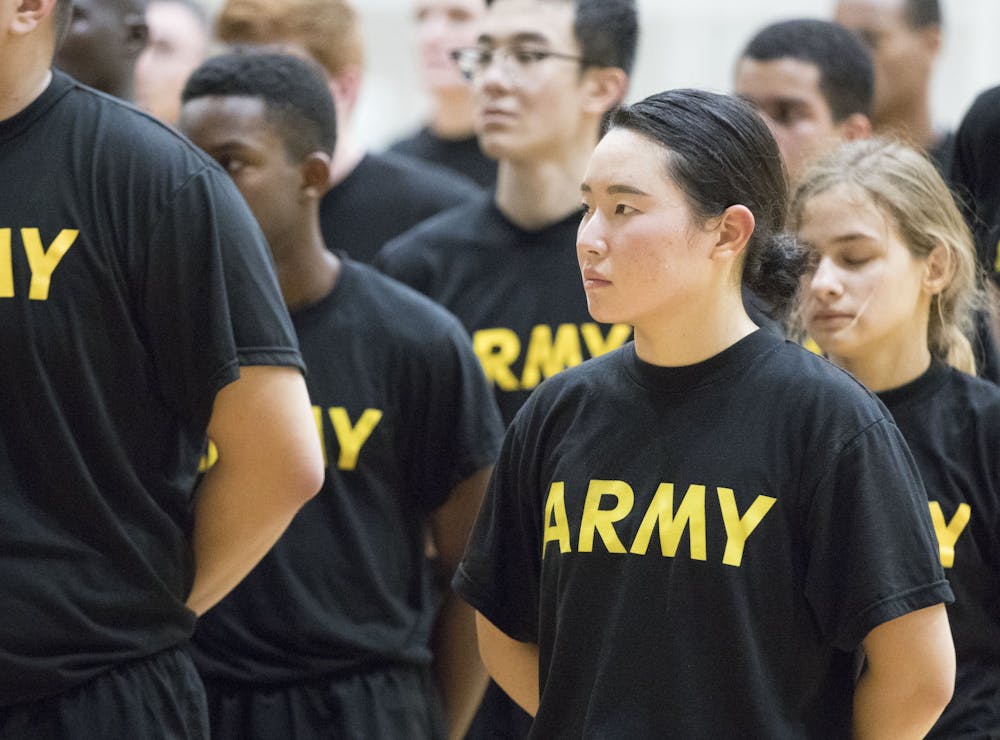Military recruiters have long been a presence on college campuses. However, it’s a presence that targets students with financial issues to further boost conscription numbers in an era when the U.S. military has been consistently engaged in conflict abroad for nearly twenty years.
Although the U.S. ended the draft in 1973, economic pressure leads many working class young people to enlist in the military. Many students view the military as a means of reducing their hefty college tuition or achieving American citizenship. The disproportionate amount of economically disadvantaged Americans in the military has come to be referred to as the “poverty draft.”
Regardless of one’s opinions on the U.S. military, the recruitment process takes advantage of students. The open targeting of students with financial difficulties in paying for college, and the near impossibility of banning army recruitment from campuses, is unethical.
Sophomore Aine McShady started noticing military recruiters in high school, and the trend continued into college.
“I’ve taken Ivy Tech courses multiple times,” she said. “And the entire inbox from the Ivy Tech email is filled with scholarship solicitations and army recruiter stuff.”
It made her feel like a customer instead of a student, she said.
McShady said she believes that the perceived saturation of recruiters at Ivy Tech compared to institutions like IU is directly tied to the concept of the poverty draft.
“They know community college is an option for people who don’t have as much money to spend on secondary education,” she said.
Junior Celeste Coughlin said she has been contacted by recruiters both in high school and at IU.
“I have never given my email to any military or armed forces establishments,” Coughlin said.
The recruiters contacting Coughlin were persistent, she said.
“I actually heard from a few people more than once, despite my saying I was not interested,” she said.
The recruiters offered Coughlin scholarships. She feels they targeted her specifically because she comes from a working class background.
Coughlin is not alone. Army Recruitment Command Maj. Gen. Frank Muth told Vice that due to the current student loan crisis, debt cancellation is one of the largest reasons college students join the military.
While universities can bar military recruiters from campus, doing so without banning other job recruiters causes them to lose federal funding, according to the New York Civil Liberties Union. In addition, colleges often benefit financially from the GI Bill, which further encourages campuses to allow military recruitment on campuses.
And because on-campus recruiting and targeting students with financial issues is so beneficial to the military — the army achieved its recruitment goal in 2019 by targeting students in debt — there are no signs of the practice ending anytime soon.
The targeting of more disadvantaged students who are convinced they have no other choice but to join the military is an unethical and discriminatory practice that has no place on college campuses.
Serena Fox (she/her or they/them) is a sophomore studying geography and environmental sustainability. She is passionate about climate justice.






